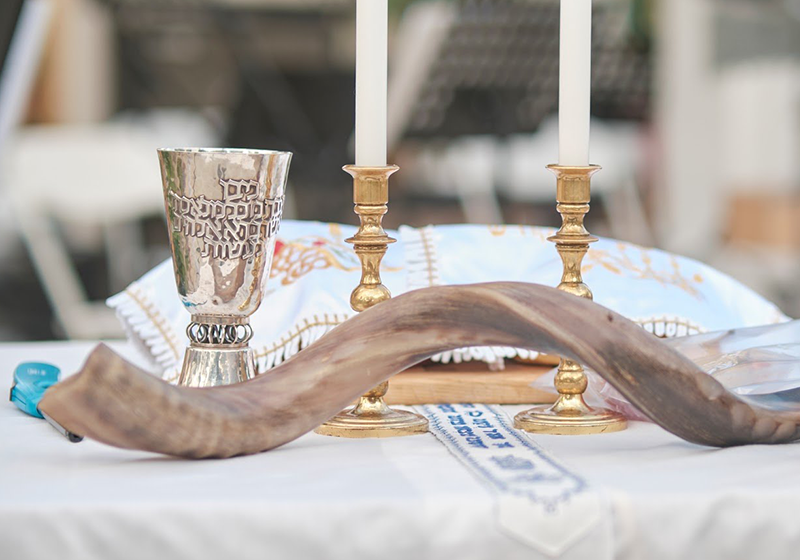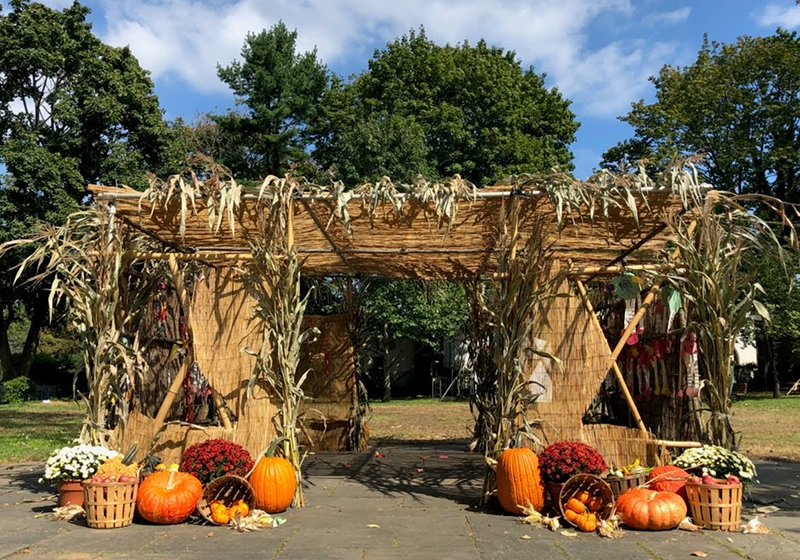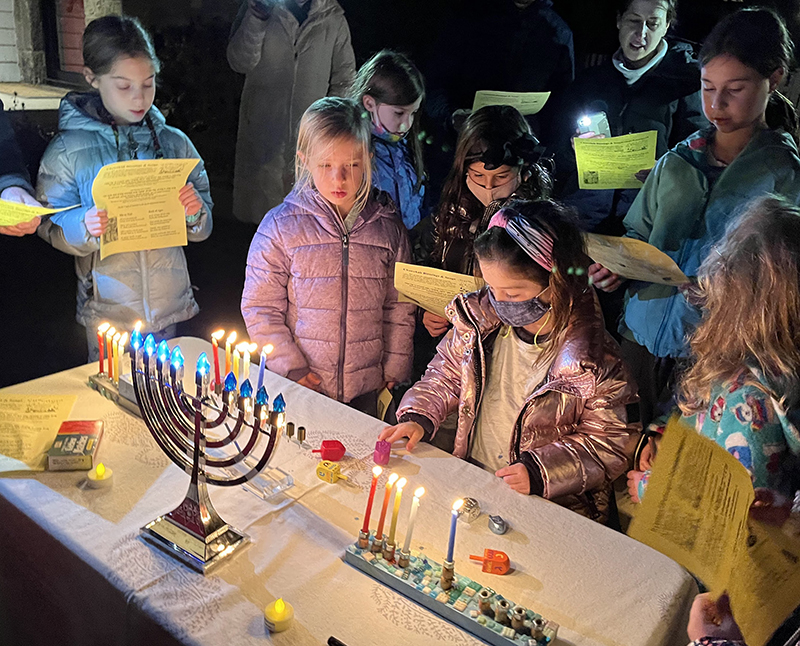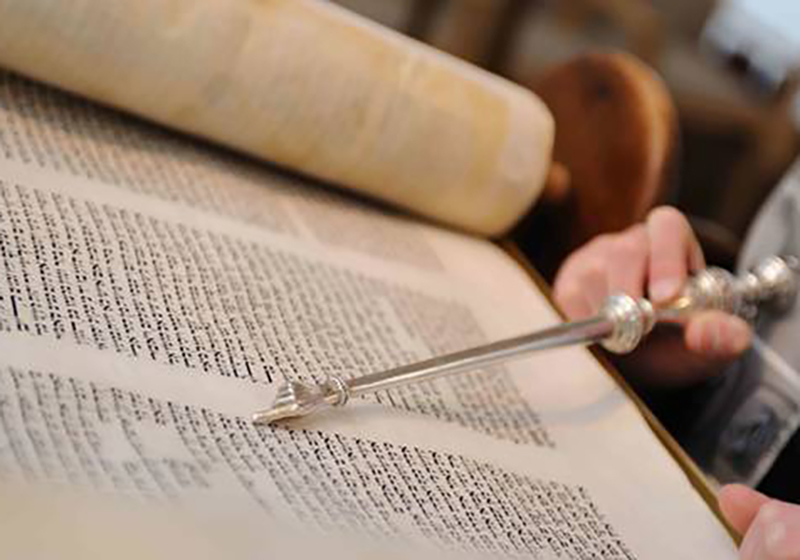Holidays at Larchmont Temple
At Larchmont Temple, holidays and festivals allow us to step out of the daily flow of time and celebrate the sacred moments of the Jewish people as a community. Each holiday offers a unique opportunity to experience the sights, sounds, smells and tastes of the season. Whether at Temple or at home we gather to experience "Jewish time" with one another. Jewish holidays begin at sunset. Dates specified are for evenings, so the holiday extends from sunset on the noted date until dusk on the last day of the holiday.

Selichot
Sept 28, 2024
On the Saturday evening prior to Rosh Hashanah, we gather for an evening of learning, prayer, reflection, and return. We prepare ourselves for the serious work of the High Holy Days.
Rosh Hashanah
October 2 - 4, 2024
Rosh Hashanah is the Jewish New Year. The shofar, the ram's horn, wakes us from our stupor and demands that we face ourselves and our wrongdoings. The liturgy of the holiday stresses that life is short, our days are numbered, and our chance to change, do good, repent, accomplish the things we dream of, and treat the people we love as they deserve to be treated, is now.
Yom Kippur
October 11 - 12, 2024
Yom Kippur, the Day of Atonement, falls ten days after Rosh Hashanah. When the Temple stood in Jerusalem, the High Priest effected atonement for the entire people through an elaborate ritual. Today, in the absence of the Temple, each of us stands, alone, together, naked as it were, before God.
Yom Kippur is the dramatic culmination of the entire season of teshuvah (repentance). It begins at sundown with the prayer of Kol Nidre, whose haunting melody marks the start of the fast and sets the tone for the next 24 hours. Referred to as the “Sabbath of Sabbaths,” Yom Kippur holds a crucial place in the Jewish calendar.

Sukkot
October 16 - 23, 2024
A seven-day holiday commemorating the fulfillment of God's promise to bring the Israelites to the Promised Land after forty years of wandering. Many people build a sukkah (booth), a temporary structure with a roof made of branches, modeled after the huts constructed in the desert. We also give thanks to God for the bounty of the Earth with prayers and a symbolic shaking of the lulav (an assemblage of palm, willow and myrtle branches) and etrog (a lemon-like fruit).
Sh'mini Atzeret and Simchat Torah
October 23 -24, 2024
Celebrates the completion of the annual Torah-reading cycle. After finishing the last sentence of the book of D'varim (Deuteronomy), the Torah is joyously paraded around the synagogue. The new cycle begins immediately with a reading from Bereshit (Genesis).
Hanukkah
December 25, 2024 - January 2, 2025
An eight-day holiday commemorating the ancient Jewish victory over the Syrian-Greeks and the miracle of the rededication of the Temple, when oil meant to last for one day burned for eight. Celebrated by lighting candles in a chanukiah (a nine-branched candelabrum), eating latkes (potato pancakes), playing with dreidels (spinning tops) and giving money or gifts. This holiday celebrates the importance of religious freedom.


Tu B'Shvat
February 12 - 13, 2025
Biblical in origin, a holiday that celebrates springtime renewal and growth. Traditions include eating fruit and planting trees. This is a celebration of the gifts of nature, our responsibility to the earth, and to sustainability.
Purim
March 13 - 14, 2025
A joyous holiday commemorating the rescue of the Jews of Persia by Queen Esther and her uncle Mordecai from the evil Haman. The story is read aloud and when Haman is mentioned in the Megillah (scroll) of Esther, people scream and turn noisemakers called “groggers” to drown out his name. Traditions include parties, dances, putting on plays (shpiels), mishloach manot (gift-giving), and eating hamentashen (three-cornered, fruit-filled pastries).
Pesach (Passover)
April 12 - 19, 2025
Celebrates the liberation of the Israelites from slavery in Egypt. At the seder (service and festive meal), the Haggadah (collection of texts and commentaries on the Exodus) is read and symbolic foods are eaten. In remembrance of the departure of the Israelites, who could not wait for their bread to rise before fleeing, matzah (unleavened bread) is eaten for the eight days of Passover. This holiday stresses the value of moving from slavery to freedom for all who are oppressed or enslaved.
Yom HaShoah
April 23 - 24, 2025
Day chosen by the Israeli Knesset in 1951 to mourn the millions killed in the Holocaust. Commemorated in Israel with a moment of silence and with speeches by survivors and the reading of names.
Yom HaZikaron
April 29 - 30, 2025
The Israeli Knesset established the day before Yom HaAtzmaut as Yom HaZikaron, a Memorial Day for soldiers who lost their lives fighting in the War of Independence and in other subsequent battles.
Yom HaAtzmaut
April 30 - May 1, 2025
Yom HaAtzmaut, Israeli Independence Day, marks the establishment of the modern state of Israel in 1948. It is observed on or near the 5th of Iyar in the Hebrew calendar.
Lag BaOmer
May 15 - 16, 2025
Lag BaOmer is a festive minor holiday that falls during the seven weeks between Passover and Shavuot. This period of time is known as the Omer, and Lag BaOmer falls on the 33rd day (lamed-gimel, "lag").
Shavuot
June 1 - 2, 2025
Celebrates the giving of the Torah at Sinai and the spring harvest. Traditionally, Jews read the Ten Commandments and the Book of Ruth and eat dairy products.
Tishah B'Av
Aug 2 - 3, 2025
Tishah B'Av, observed on the 9th (tishah) of the Hebrew month of Av, is a day of mourning the destruction of both ancient Temples in Jerusalem.




